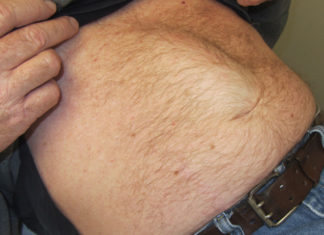A chemical pregnancy is essentially a clinical term used to define a pregnancy that gets naturally terminated before the fifth week of pregnancy.
It is a terribly confusing period, and most women fail to understand if they have been even pregnant. You will find the pregnancy tests pointing to positive results and then again towards the negative at one time.
Chemical pregnancies result when the fertilised egg fails to get implanted on the wall of the uterine wall. In fact, almost 50 to 60 per cent of first-time pregnancies result in a chemical pregnancy.
The availability of
How does a chemical pregnancy take place?
A chemical pregnancy takes place when a fertilised egg does not complete implantation in the uterine wall.
Normally, when the egg gets implanted, the HCG (Human
Since the HCG levels are quite high, therefore it can be detected in blood and urine tests. However, if an ultrasound is conducted at this stage in a chemical pregnancy, that will not reveal a developing placenta or a gestational sac.
Since the fertilised egg is unable to complete the implantation, a miscarriage occurs. So, you will notice your periods beginning a week after the period was supposed to start.
Reasons for a chemical pregnancy
The exact reason for such chemical pregnancy or miscarriage is unknown, but many reasons can be considered responsible for chemical pregnancy symptoms.
Almost one-third of fertilised eggs do not complete the implantation phase. Some of the major reasons for the incompletion of fertilised eggs are as follows:
- Chromosomal Abnormalities:
Some doctors feel that the main reason might be chromosomal abnormalities. These lead to insufficient embryonic development. - Infections:
Sometimes infections such as Syphilis, Chlamydia, etc. are responsible for a chemical pregnancy. Alternatively, clotting disorders, fetus implantation outside the uterus, and also anatomical problems are can cause chemical pregnancy. - Endometrial Lining Problems:
Another reason is the problem with the endometrial lining which does not allow the embryo to get implanted properly thus resulting in its improper growth. - Age:
A chemical pregnancy is possible if the age of the mother is more than 35 years. The risks remain the same if she suffers from blood clotting disorders and thyroid-related problems.
What are the symptoms of chemical pregnancy?
A chemical pregnancy is extremely tricky because it can hardly be detected. The pregnancy gets terminated even before the full signs of it are felt by you. Also, a little bleeding or spotting after you have tested positive for pregnancy often occurs.
So, it is difficult to decide whether it is a sign of pregnancy or termination. Some of the obvious signs of a chemical pregnancy are:
- Heavy bleeding
- Clots emerging from the vagina
- Cramps similar to menstruation
You must consult a doctor in case there is extreme bleeding after you have tested positive for pregnancy. Also, inquire how long does chemical pregnancy bleeding last.
Treatment
There is no known treatment for chemical pregnancy as such. You must visit the doctor if you find any such changes. Tests need to be conducted to determine the causes behind the condition, and the doctor will also advise treatment (if any).
For infections and uterine problems, the doctor will offer the required medicines. You must follow the instructions and prescriptions given by the doctor.
Is doctor consultation required after a chemical pregnancy?
In most cases of a chemical pregnancy, medical intervention is not necessary because they occur in the early stages of pregnancy.
But sometimes, if it is accompanied by extreme bleeding, stabbing pain, dizziness, or weakness, a consultation with the doctor might be necessary to discard the possibilities of ectopic pregnancy.
Normally, a couple of chemical pregnancies are not abnormal, but you need to consult a doctor if you have a third or even a fourth one.
The gynaecologist may determine what caused the chemical pregnancy and advise how to reduce the chances for the next one.
A chemical pregnancy does not mean that your menstruation cycle will be abnormal. It is just another ovulation cycle, and the body is ready to get pregnant after chemical pregnancy again. Your emotions may still be a mess but take heart and start afresh.






